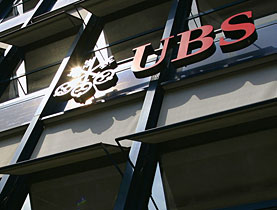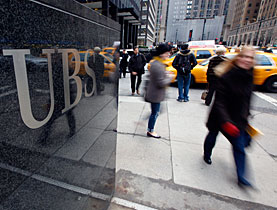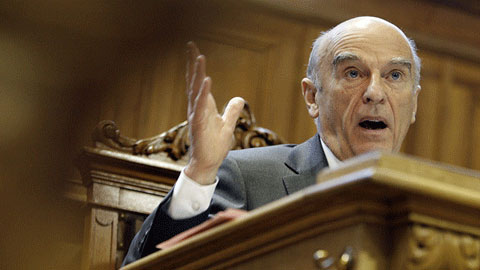UBS off the hook, but is Swiss banking?

Switzerland and the United States have ended the legal battle involving UBS, but the potential cost to banking secrecy is unknown until details of the deal are released.
Lawyers told a Miami judge on Wednesday that an agreement to release UBS client data to the US tax authorities had been reached and that the threatened trial would be halted when it receives the final signatures.
UBS is a clear winner having avoided a potentially disastrous court case to determine whether it had to hand over the confidential details of 52,000 clients. Shares rose more than three per cent on the day after the news broke.
However, many people in the Swiss financial sector will be biting their nails over the next few days until the full extent of Swiss concessions has been revealed.
The Swiss Bankers Association gave a guarded welcome to the announcement of an agreement being reached. “We expect that the Swiss legal process will be maintained by the deal,” said spokesman Thomas Sutter.
Kaspar Villiger, chairman of the UBS board, said in a statement: “The board of directors and the management of UBS are grateful that the two governments reached this agreement to resolve this issue, and we thank the Swiss government and the Swiss delegation that negotiated this settlement for their outstanding efforts.”
Swiss Justice Minister Eveline Widmer-Schlumpf said she was “pleased to see that a compromise solution has been found. This is in the interest of Switzerland and the United States”.
In a similar vein, the Internal Revenue Service (IRS) welcomed the agreement saying it “protects the United States government’s interests”.
Timing important
Negotiations lasted several months after the bank admitted in February to aiding some US citizens evade taxes.
A few hundred UBS clients have already been handed over to the IRS, the US tax agency. The question remains how many more will lose the protection of Swiss banking secrecy and how that release of information will be effected without breaking Swiss laws.
“Everybody will be focusing on the number of accounts that will be handed over, but the more important issue is the criteria that the IRS and the Swiss have agreed upon that would prompt disclosure,” US tax lawyer Scott Michel of Caplin and Drysdale told swissinfo.ch.
“One of the biggest bones of contention appeared to be the time frame of disclosure. The deal could have established a framework that respects the letter of Swiss due process while at the same time moves it forwards more expeditiously.”
Switzerland has been forced to relax the “due process” of revealing banking data to foreign tax jurisdictions in recent months as a result of intense pressure from abroad.
But the Swiss government has been insistent that evidence of misdemeanours must be presented first and that the country’s legal procedures should not be sidestepped.
Could open floodgates
Tax law expert Peter V Kunz from Bern University believes that the IRS would not have to present the names of the clients it wishes to examine if it can provide evidence of systematic abuse by UBS clients.
But he was concerned that the legal process of examining such a demand for information should not be swept away.
“There is no way that the data of thousands of banking data could be revealed to the US in the next few days. That would be the end of Swiss banking secrecy,” he told swissinfo.ch.
If the government has gone too far to appease the US, it would open the floodgates to other countries putting in similar demands, he added.
“If there is a specific exemption, then other countries would call Switzerland demanding the same treatment,” he said.
The deal has been agreed by all parties and initialled with the expectation of it being formally signed soon. The IRS said details of the agreement could be released as early as next week.
Matthew Allen and Urs Geiser, swissinfo.ch
On May 14, 2008, former UBS employee Bradley Birkenfeld and a Liechtenstein businessman were charged by the US authorities with helping an American billionaire avoid paying taxes on $200 million of assets deposited in Swiss and Liechtenstein bank accounts.
Birkenfeld turned whistleblower, giving details of UBS private banking practices to US prosecutors.
In July, a Miami court authorised the Internal Revenue Service to issue a summons on UBS demanding the release of confidential information on clients the agency suspected of tax evasion.
In the same month, UBS told a congressional hearing that it would stop offshore banking activities for US clients.
UBS agreed in February to pay $780 million and name some United States clients to resolve criminal fraud charges against it. However, this did not affect a separate demand from the IRS for the details of 52,000 UBS clients, in direct contravention of Swiss banking secrecy laws.

In compliance with the JTI standards
More: SWI swissinfo.ch certified by the Journalism Trust Initiative








You can find an overview of ongoing debates with our journalists here. Please join us!
If you want to start a conversation about a topic raised in this article or want to report factual errors, email us at english@swissinfo.ch.